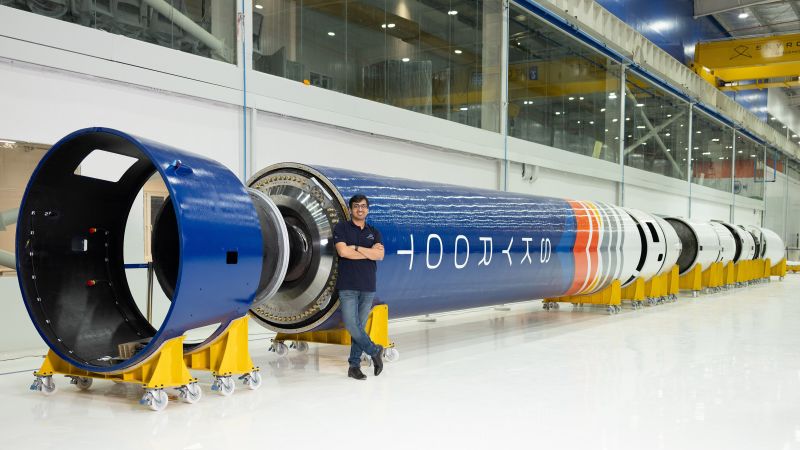India has made significant strides in space exploration, becoming the first Asian country to reach Mars orbit and the fourth globally to land a spacecraft on the moon. However, the country’s private sector has had limited involvement in space exploration, mainly serving as suppliers and vendors for the national space agency, ISRO. This is changing rapidly due to government reforms aimed at increasing private participation in the space sector, following the model of countries like the United States where private companies like SpaceX have driven down costs and boosted space ambitions.
Indian startups like Skyroot Aerospace are leading the charge in commercializing India’s space sector, with plans to launch the country’s first privately launched satellites into orbit using the seven-story tall Vikram-1 rocket. The company aims to offer customized launches for satellites under 500 kilograms, targeting the small satellite market that is experiencing exponential growth. While SpaceX’s ridesharing missions offer cost-effective options for launching satellites, there is a demand for more customized launch solutions to reach specific orbits for observations. Skyroot seeks to fill this niche by providing dedicated launches at a higher cost, with the goal of making it more affordable in the future.
Prime Minister Narendra Modi has made efforts to commercialize space activity in India, allowing private enterprises to participate and easing foreign investment approvals in the space sector. The global space economy is rapidly growing, with companies launching thousands of satellites into low Earth orbit to form mega-constellations for broadband internet services. India’s space startups have seen a surge in investment, with almost 200 space startups in the country and over $200 million in private investment. Skyroot has raised $95 million and aims to demonstrate consistent success in reaching orbit to scale up and attract more clients, including the government as a potential customer.
Chandana envisions Skyroot becoming a top global launch company and aims to make the company profitable by securing contracts and proving the reliability of its launches. While India’s government funding for the space program is significantly lower than that of NASA, there is potential for Indian startups to compete in the global marketplace by going beyond servicing domestic mandates and bidding for international contracts. The goal is for the private space industry in India to rival the development of markets in countries like the US and China, requiring substantial government backing and funding to support growth and innovation in the sector.
The Indian space startup scene is rapidly evolving, with the potential to become a major player in the global space industry. Companies like Skyroot Aerospace are driving innovation and shaping the future of India’s space sector through advancements in technology, increased private investment, and government support for commercial space initiatives. The goal is to establish India as a space superpower and a key player in the fast-growing space economy, with opportunities for startups to compete on a global scale and secure lucrative contracts for commercial space missions.


